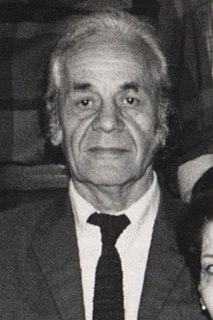A Quote by Anne Carson
A page with a poem on it is less attractive than a page with a poem on it and some tea stains.
Related Quotes
I feel like the older I get, the truer it feels that I'm only going have an investment in a poem if it allows or forces me to bring something that's supremely me onto the page. I used to think that the speaker of a poem was talking to someone else, to some ideal reader or listener, but now I think that speakers - poets - are talking to themselves. The poem allows you to pose questions that you have you ask of yourself knowing that they are unanswerable.
I like the poem on the page and not at the podium. I like to address the poem in peace and quiet, not on the edge of a folding chair with a full bladder. I can't stand hearing a poem that I can't see. I did a reading at Wayne State, and it ended with the comedy such occasions deserve. I'd seated myself on a piano bench, and discovered upon attempting to arise at the end that the varnish had softened and I was stuck fast. The hinge was to the front, under my knees, so that as I tried to get up, I merely opened the lid.
The subject of the poem usually dictates the rhythm or the rhyme and its form. Sometimes, when you finish the poem and you think the poem is finished, the poem says, "You're not finished with me yet," and you have to go back and revise, and you may have another poem altogether. It has its own life to live.
It was early on in 1965 when I wrote some of my first poems. I sent a poem to 'Harper's' magazine because they paid a dollar a line. I had an eighteen-line poem, and just as I was putting it into the envelope, I stopped and decided to make it a thirty-six-line poem. It seemed like the poem came back the next day: no letter, nothing.





































